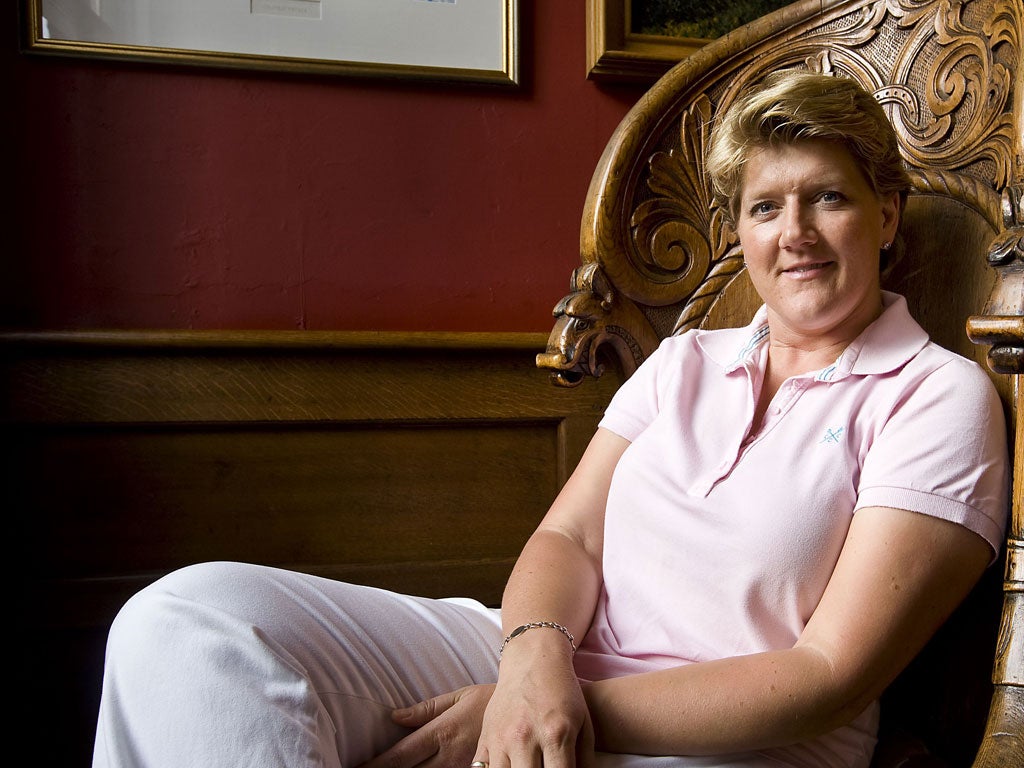The Week In Radio: Balding's golden moments win over a sports cynic

Your support helps us to tell the story
From reproductive rights to climate change to Big Tech, The Independent is on the ground when the story is developing. Whether it's investigating the financials of Elon Musk's pro-Trump PAC or producing our latest documentary, 'The A Word', which shines a light on the American women fighting for reproductive rights, we know how important it is to parse out the facts from the messaging.
At such a critical moment in US history, we need reporters on the ground. Your donation allows us to keep sending journalists to speak to both sides of the story.
The Independent is trusted by Americans across the entire political spectrum. And unlike many other quality news outlets, we choose not to lock Americans out of our reporting and analysis with paywalls. We believe quality journalism should be available to everyone, paid for by those who can afford it.
Your support makes all the difference.I've never liked sport. As a person whose job basically involves listening to stuff, and whose spine has become embedded in the sofa like an ancient fossil, the last thing I want to do is have my nose rubbed in other people's physical accomplishments. I know what you are going to say: that I'm missing out, that I'm denying myself a wondrous sense of communality with my fellow human beings. There are indeed times when I wish I could lose myself in the glorious highs and gut-wrenching lows of other people's physical endeavour. But where you might see athletes bravely breaking the pain barrier in the name of international sporting achievement, I just see a group of loons running around in circles.
If, for me, watching sport on television is like watching paint dry, listening to it on the radio makes my mind go into a panicked spasm thinking of all the more interesting things I could be doing – filling in my tax return, cleaning behind the fridge, memorising the contents of the phone directory. I make a notable exception for cricket where, in the absence of any action on the field, commentators are forced to make their own entertainment, with often amusing results.
But this week something odd has happened. I've been listening to a sporting discussion and finding myself peculiarly engaged. I'm not talking about the Australian Open final, 15 minutes of which nearly sent me into a coma. (Sport has some benefits for a bad sleeper like me; it's the aural equivalent of temazepam). I'm referring to Clare Balding's new Radio 4 programme Sport and the British.
The series is a 30-part Olympic aperitif, served up in fifteen-minute instalments, that examines our relationship with sport, how it developed and how the British exported it around the world. More crucially, Balding wanted to find out "how this great triviality (has become) so central to our culture".
Her search for the roots of the Olympics in the first episode took her to Rugby School in Warwickshire, where the Frenchman Baron Pierre de Coubertin visited in the 1880s and witnessed the character-building lessons that could be learnt through sport. Whether it was specifically the sight of knock-kneed boys freezing to death in a muddy field that moved him to found the first Olympics wasn't entirely clear.
Baron de Coubertin's early vision was wonderful, and wonderfully naive. He wanted to unite nationalism and internationalism and promote the educational value of striving to do one's best. He envisaged a place "where nations would compete on the sports field rather than the battlefield" and hoped for "a spirit of tolerance, generosity, unity and friendship". The man had clearly never experienced a British rugby team out on the tiles in Torquay.
There was a lovely recording of George S Robertson, a classical don at Oxford who went to the inaugural Olympic games in Athens purely out of curiosity, and decided he might give the discus a go while he was there. "That was one of the beauties of the original Olympic Games," he said. "You just turned up."
Balding also talked to Lord Coe, who declared sport to be a crucial part of our collective identity, against the sound of articulated lorries shovelling our annual transport budget into a hole in the ground in the Olympic Village.
I can't say that Sport and the British made me want to watch sport, any more than reading a book about politics makes me want to become a cabinet minister. But the fact that I listened, and didn't once think about cleaning behind the fridge, is surely testament to its quality.
Join our commenting forum
Join thought-provoking conversations, follow other Independent readers and see their replies
Comments